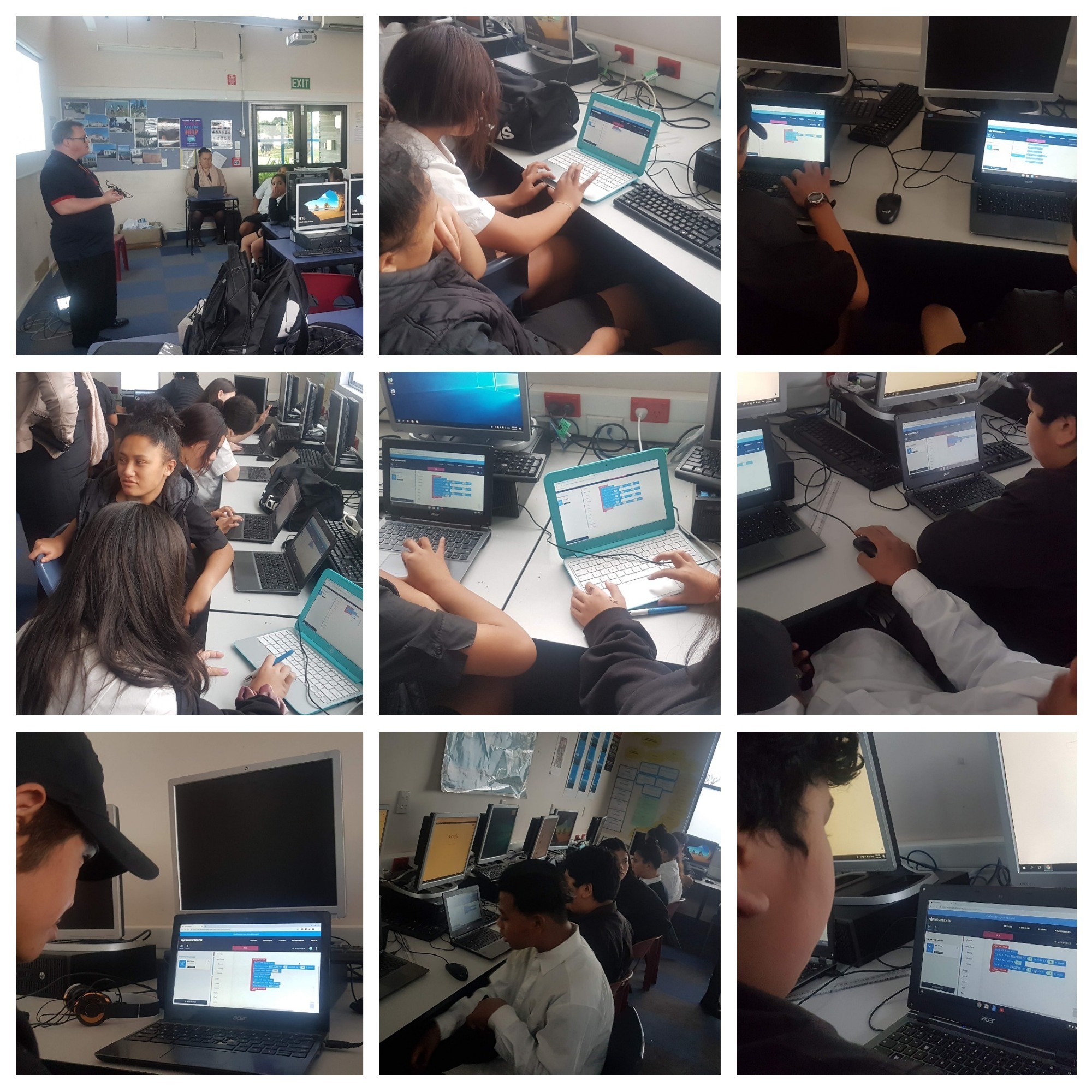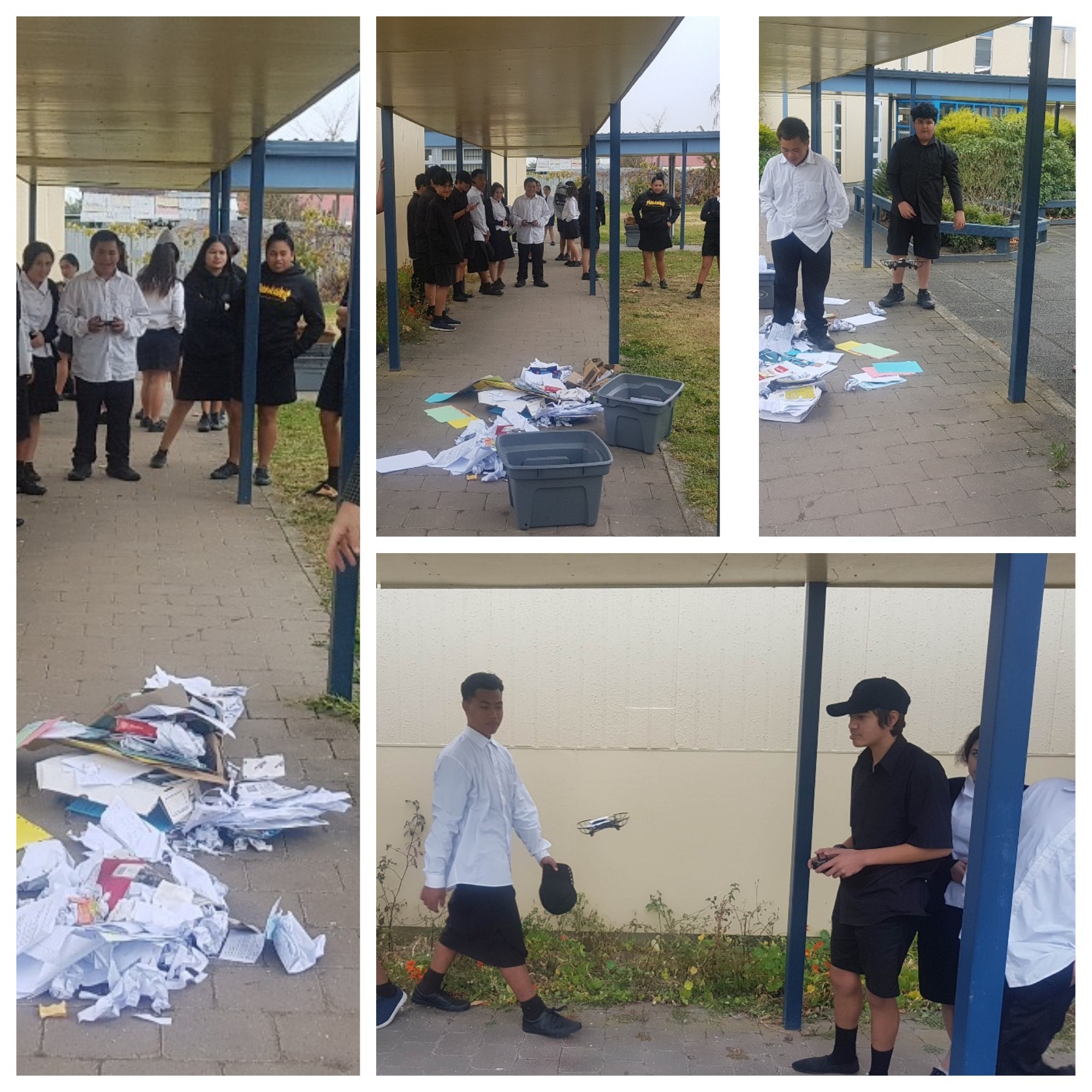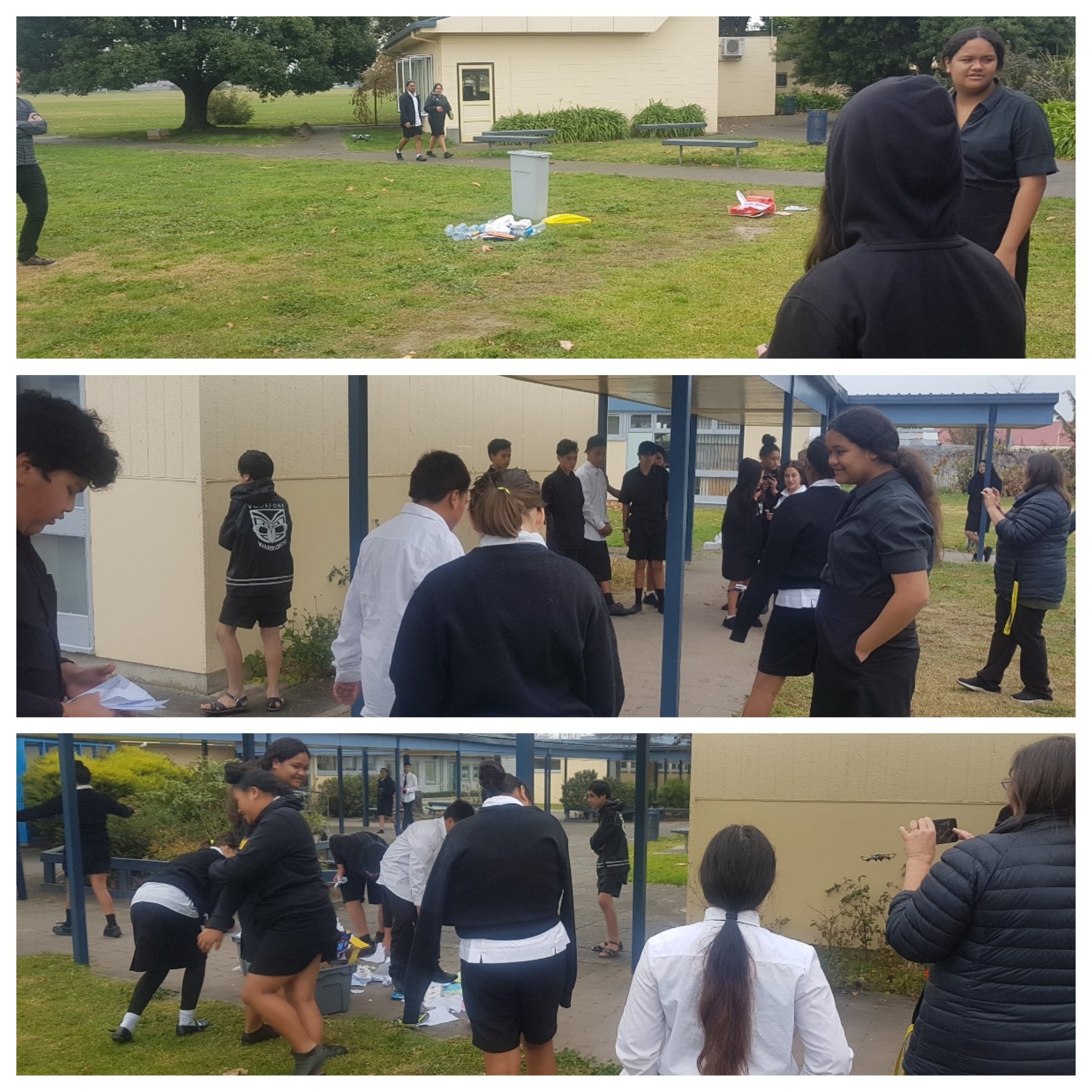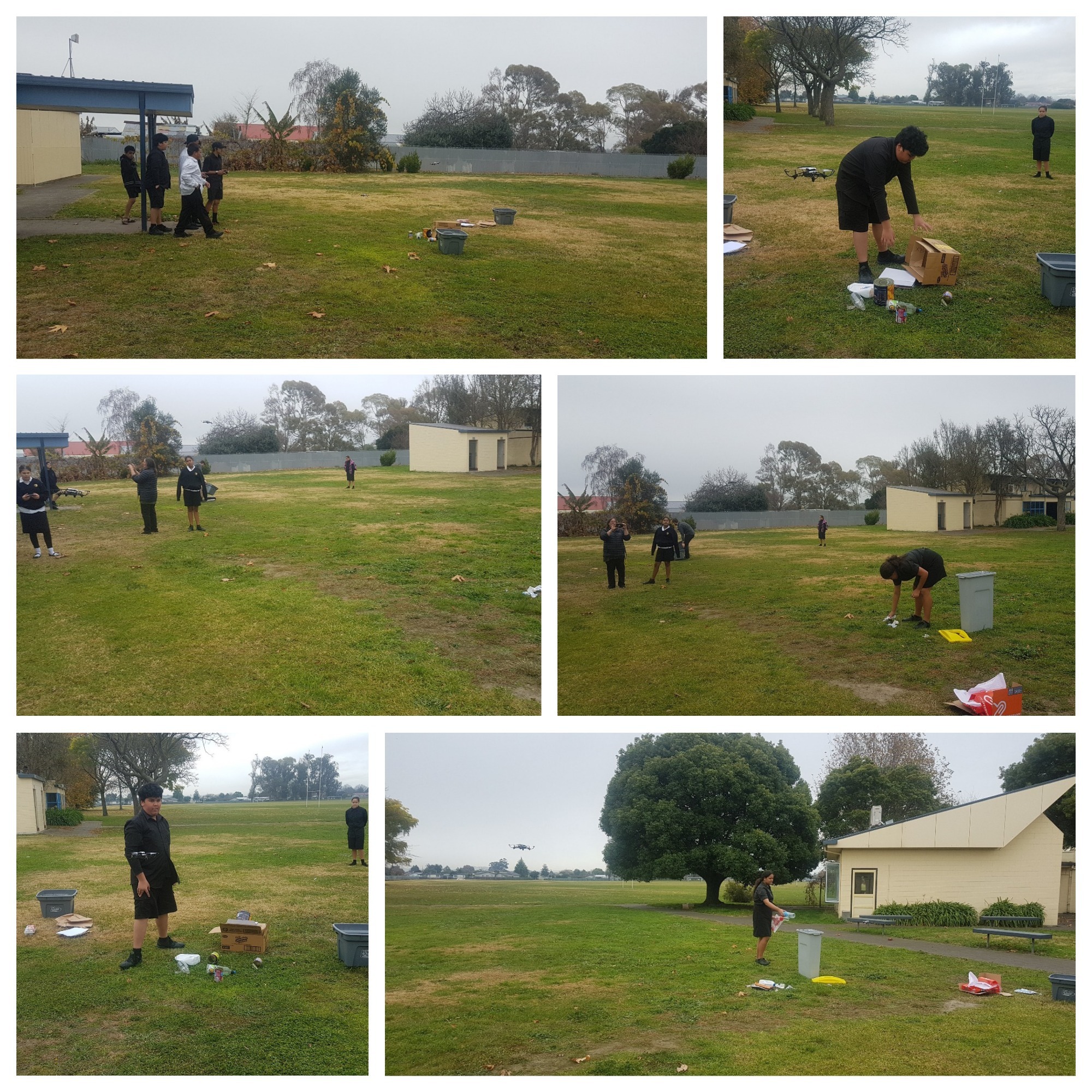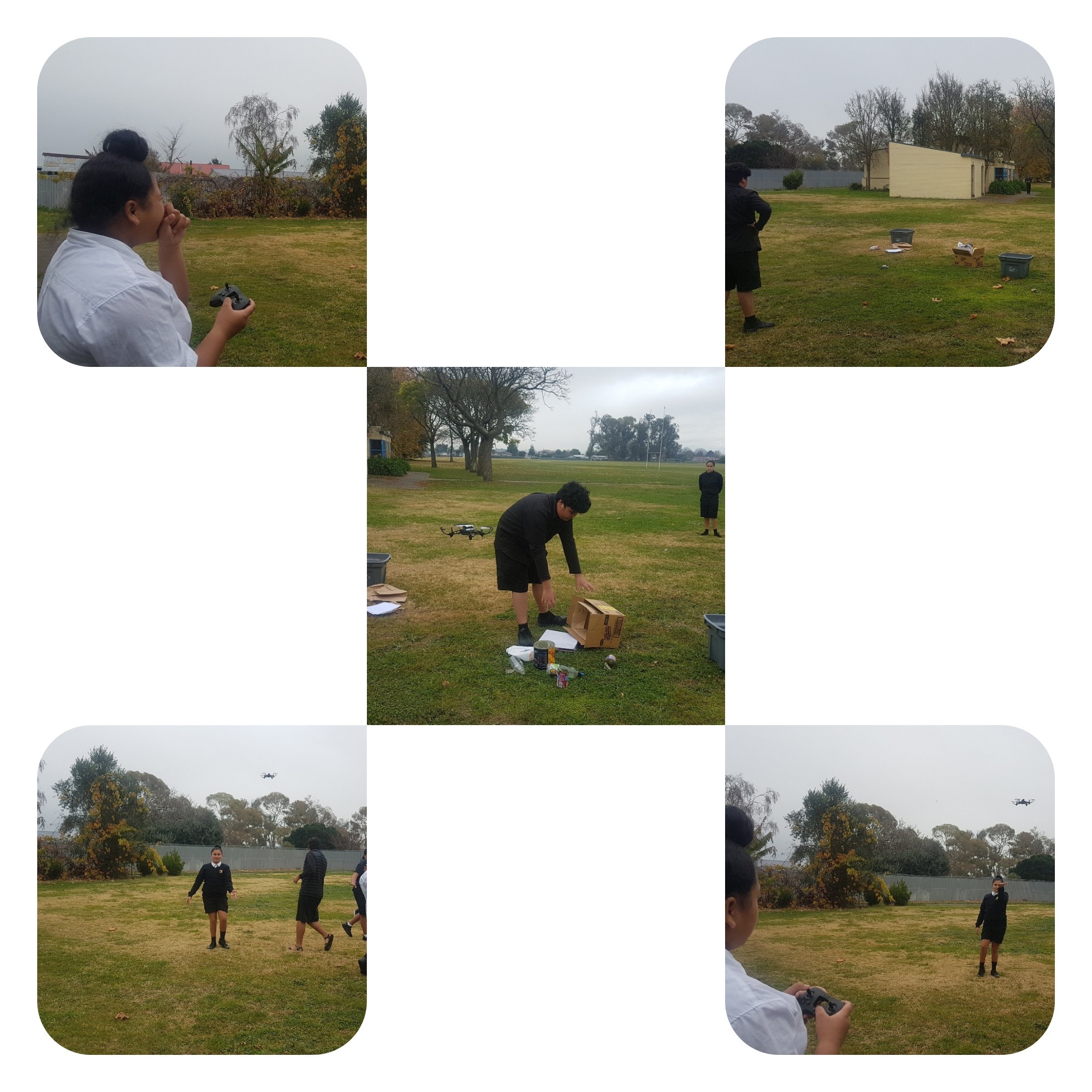Drones and Recycling waste - Hastings
Hawkesbay rangatahi thoroughly engaged and enjoyed learning how to code drones and then utilising these for capturing footage of their school recycling program. Teachers are playing an important role in developing sustainability. Together all classes and students are taking steps to categorise their waste into paper, plastics, bottles and general waste.
This first step is critical in reducing the amount of resources that we needlessly throw into landfills or that ends up in our waterways. Future thinking is all about finding ways to become sustainable and our rangatahi hold the key to co-creating a better world. This will include:
reduce waste,
reuse all possible resources, and
recycle what remains.
As students learn to create computer programs that can be applied to sustainable initiatives, they learn how to collaborate with others, develop problem-solving skills, and persist through difficult tasks. As they progress through this hands-on program, opportunities open up for rangatahi to study programming concepts, computational thinking and develop interactive games or stories they can share on how to become more sustainably responsible digital citizens. Future roles for our young people can include devising:
waste-monitors for each classroom
analysing and categorising waste collected across rooms
creating zerowaste zones on the school compound
using drones to monitor the results of their work and displaying them graphically on noticeboards or in newsletters.
Useful links to enhance your school’s recycling initiatives are:


